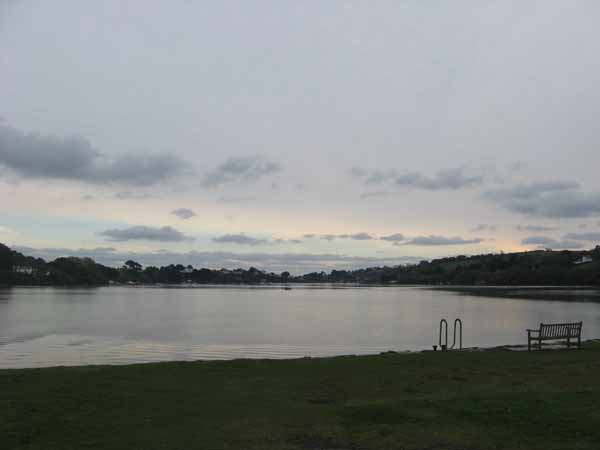|
|
|
Ordnance Survey describes this location as "Point" and the wider village behind the camera as Chycoose. It is an attractive location overlooking Restronguet Creek in Cornwall, located a few miles to the south of the previously-featured village of Cowlands. Point is the former terminus of the Redruth and Chacewater Railway, which ran from Redruth down the Poldice and Carnon valleys to this quay, a few miles north of Falmouth. The railway closed in 1915 due to an awkward combination of bankruptcy and its principal locomotive, No. 1 Miner, being life-expired. Much of the trackbed has now been subjected to a remarkably extensive example of rail/road integration, but makes an interesting walk through various ex-industrial bits of Cornwall. (Some of these bits may be able to support vegetation again in another 50 years or so.) The quay at the bottom end is now a village green overlooking the creek - a particularly attractive sight at high water and notable for appearing from here to be an inland lake. The exit into the Fal estuary is to be found more or less in the centre of the view, but is only visible if you actually take a boat right up to it. The picture was taken on a quiet afternoon walk to visit a place marked on the map as "Come-to-Good". This is strategically written on the map to suggest that it could equally refer to a village at the top of the hill or a farmhouse at the bottom. It seems to refer to the farmhouse; the village is Penelewey (which presumably wins some kind of award for having the highest proportion of "e"s in a village name of over 5 characters). It would help if the fonts for the names on the OS Landranger map were different sizes. Anyway, the farmhouse is very attractively situated and the walk was extremely pleasant, though the short November Sunday afternoons meant that dark settled in shortly after Come-to-Good and the return to Perranwell station was made with no reading matter on a wet, dark evening with half an hour until the train. For some reason the other pictures taken on this walk mostly show long-exposure views of a damp provincial railway station. |
